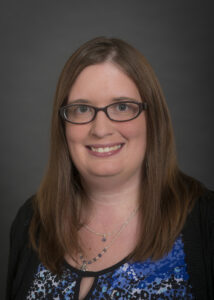Policy Fellow Kelli Ryckman

Kelli Ryckman is an associate professor in the Department to Epidemiology at the College of Public Health. As one of our Policy fellows at the Iowa Institute of Public Health Research and Policy, Ryckman is recommending changes to the guidelines for newborn screening in the neonatal intensive care unit (NICU).
State Newborn Screening Programs are critical public health services aimed at screening every child born for specific genetic, endocrine and metabolic conditions that if left untreated, can lead to severe disability or death.
There are ~ 39,000 births in Iowa each year and approximately 10 percent of all births in Iowa are preterm, low birth weight or transferred to the NICU.
Preterm Birth and Newborn Screening
It is well recognized that premature, low birth weight or sick newborns are more likely to falsely screen positive for one or more of the newborn screening tests. These false positives are generally correlated with:
- Lower thyroid stimulating hormone
- Higher amino acids
- Lower medium and long chain acylcarnitines
This 10 percent also makes up over a third of the follow-up workload required for the newborn screening program due to the high false positive rate in this population. Transfusions, parental nutrition, medications and timing of the test in the neonatal intensive care units (NICU) can affect the validity of the newborn screening test.
Addressing False Positive Screens
To address these challenges the Clinical and Laboratory Standards Institute (CLSI) developed a guideline for screening preterm, low birth weight and sick newborns in 2009. Recent surveys have shown that despite the recommendations many physicians caring for newborns in the NICU are unaware of its existence and that only 25% of states have adopted or were planning to adopt the recommendations (James Cummings. AAP News. April, 2012).
Iowa has not yet adopted the recommendations.
Policy Recommendation
Develop and disseminate a uniform set of guidelines to be implemented across the state. These guidelines will align with the national recommendations, will provide for better utilization of resources and will decrease false positives in this special population of newborns.